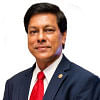Lessons from Singapore

When Singa-pore was expelled from Malaysia in 1965 and thrust into an unwanted independence, its overall condition—economic, social and political—were not at all conducive. The country faced a myriad of problems: a stagnant economy with little manufacturing base, poor infrastructure, severe unemployment, poverty, crime, disorder, poor public health, an acute housing shortage, and recurring conflict among the ethnic and religious groups that made up its population. It was an undeveloped country, known as a backward fishing village, with a GDP per capita of less than USD 320. Today, this tiny island-state, with a total land area of around 280 square miles and no natural resource of its own, is able to produce a GDP that exceeds USD 350 billion annually. Singapore's GDP per capita rose to USD 64,579 in 2018, making it the fourth highest in the world and is considered to be one of the best modern, industrialised societies, viewed as a role model for other governments in Asia and beyond. So, how have they done it? Numerous experts have tried to explain this development. In my view, I would say that this has been possible because of strong leadership, starting with founding Prime Minister Lee Kuan Yew and other pioneer leaders, who worked hard with vision, honesty and genuine desire and commitment to build a multicultural, secular and meritocratic nation where justice and equality will prevail.
"United we stand, divided we fall" is a well-known saying. While many factors contribute to the overall development of a country, national unity is the most vital to bring peace, harmony, wealth and prosperity to a nation. A nation cannot prosper if the people are not united. From the very beginning, Singapore's founding fathers believed passionately in the vision of a multiracial society. On August 9, 1965, the day Singapore became independent, Prime Minister Lee Kuan Yew said: "This is not a Malay nation; this is not a Chinese nation; this is not an Indian nation. Everyone will have his place, equal: language, culture, religion. We unite regardless of race, language, religion, culture." This national identity has played an important role in politics and has shaped many major national policies, spanning education, housing and healthcare, among others.
When it became independent Singapore did not have a common school system or a common curriculum. There were schools established by different ethnic groups like Chinese, Malay, Indian that did not have a common curriculum. National unity, as advocated by sociologists, is best achieved through unified education system; faulty, divisive, discriminatory and contradictory education cannot produce good citizens, let alone take the country forward. Singapore's pioneer leaders have long recognised the importance of unified education system, and as such, one of the first things they did was that they merged the schools that had been established by different ethnic groups into a unified and neutral education system to create a sense of national identity. All schools followed a common curriculum. Although Singapore recognises and teaches four official languages—Chinese, English, Malay and Tamil—English is the language of government and the medium of instruction in schools. This has helped avoid the racial and ethnic segregation that afflicts many countries and played an important role in creating national unity as well.
For Singapore's founding father, education went beyond formal schooling. As Mr Lee put it in a speech in 1977: "My definition of an educated man is a man who never stops learning and wants to learn." Since independence, the Singaporean government has invested very heavily in developing a good quality teaching force and a good team of school leaders with strong emphasis on mathematics, technology and science education to facilitate a large and competent workforce upon graduation. It views education as a national investment and spends around 20 percent of its annual budget on education sector. Singapore's education system is relentlessly forward-looking and is considered one of the best in the world. The government is constantly working on reforms for the education system and reviews syllabi to remain flexible and guarantee the quality of education. It has been said that Singapore was blessed by its lack of natural resources because it was forced to develop its only resource: its people. Investing in its people has been a winning formula as a way of developing its economy and raising living standards.
Good government starts with "honesty", which is the most essential trait of a leader. Without honesty a leader can't lead with integrity and impartiality—a necessary element for economic development and prosperity. There is a Chinese proverb: "If the top beam is askew, the bottom beams will be crooked." Keeping a system clean must start at the very top. Prime Minister Lee Kuan Yew knew well that the best way to win people's trust is by being honest and transparent. He chose highly educated, dedicated, and honest citizens to run the country, recruited them based on their individual merit, abilities, performance and achievements. Mr Lee emphasised the importance of good leadership in his memoirs, when he wrote: "My experience of developments in Asia has led me to conclude that we need good men to have good government. However good the system of government, bad leaders will bring harm to their people. The single decisive factor that made for Singapore's development was the ability of its ministers and the high quality of the civil servants who supported them."
Singapore's leaders, cabinet ministers and senior civil servants are paid competitive salaries, so the temptation would be less to take bribes and make backend deals against public interest. They run Singapore like a CEO runs a company—they are fully focused and always looking to bring improvements in the economic and social domains. Their main objective is people's well-being by transforming Singapore into an international economic powerhouse.
At a time where newly independent nations were implementing protectionist policies to protect native industries, Singapore went the opposite way. Like other developing countries they did not rely on foreign aid, but on trade and investment to achieve its development goals. Singapore's leaders, bureaucrats often toured the world, but not for their personal pleasure but to attract foreign investment. They invited multinational corporations (MNCs) to set up manufacturing facilities in Singapore. They made business-friendly laws, offered various tax breaks and attractive policies to new investors and multinational corporations like Shell and Esso to establish oil refineries in Singapore. This not only addressed the massive unemployment but billions of dollars also poured in, ensuring the country's success.
Another key element of Singapore's success is its corruption-free governance. The rule of law and good governance acted as a source of attraction to foreign investors to do business in Singapore. The founding leaders knew that they had to start from a clean slate. Prime Minister Lee Kuan Yew stressed the importance of good governance in his memoirs: "When we took the oath of office in June 1959, we all wore white shirts and white slacks to symbolise purity and honesty in our personal behaviour and our public life. We made sure from the day we took office in June 1959 that every dollar in revenue would be properly accounted for and would reach the beneficiaries at the grass roots as one dollar, without being siphoned off along the way. So from the very beginning we gave special attention to the areas where discretionary powers had been exploited for personal gain and sharpened the instruments that could prevent, detect or deter such practices." This symbolised their determination to keep the government clean and incorruptible, and it has set the tone for Singapore ever since.
Abu Afsarul Haider studied economics and business administration at Illinois State University, USA. He is an entrepreneur currently living in Dhaka. Email: [email protected]

 For all latest news, follow The Daily Star's Google News channel.
For all latest news, follow The Daily Star's Google News channel. 



Comments